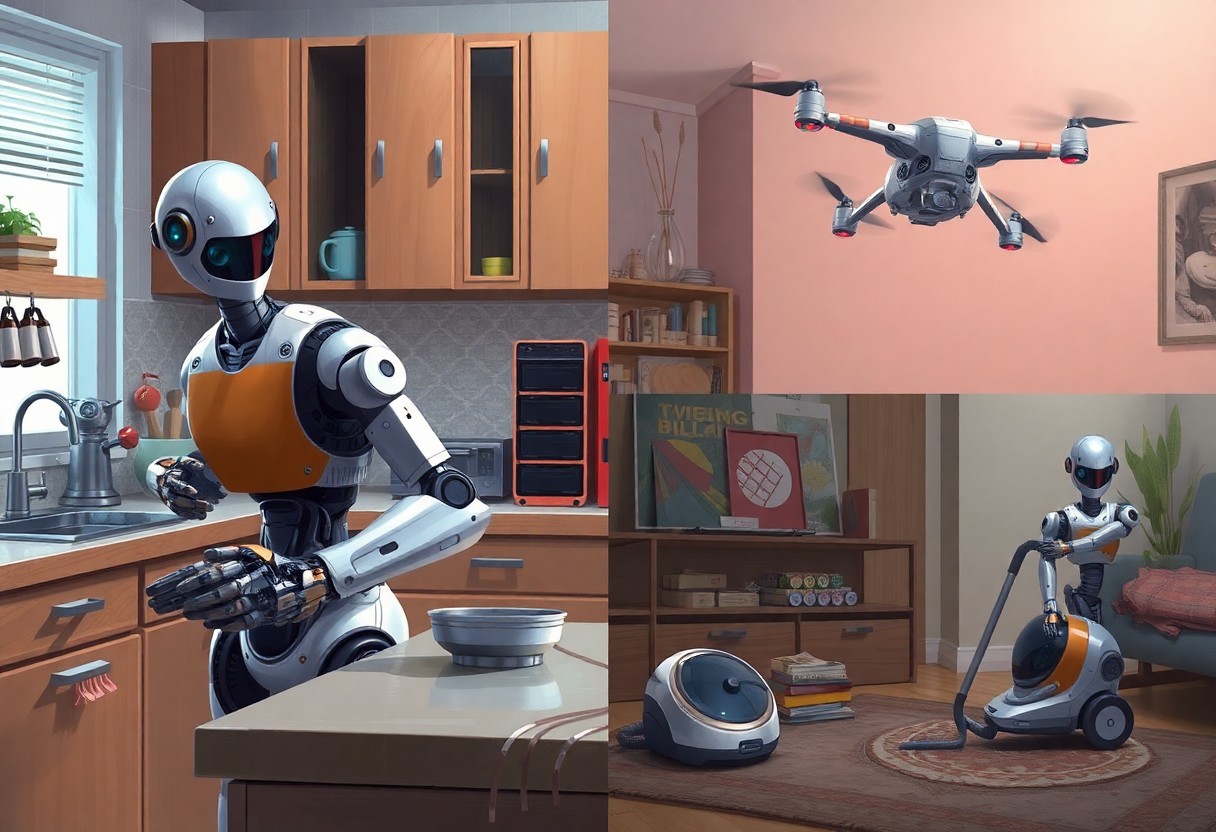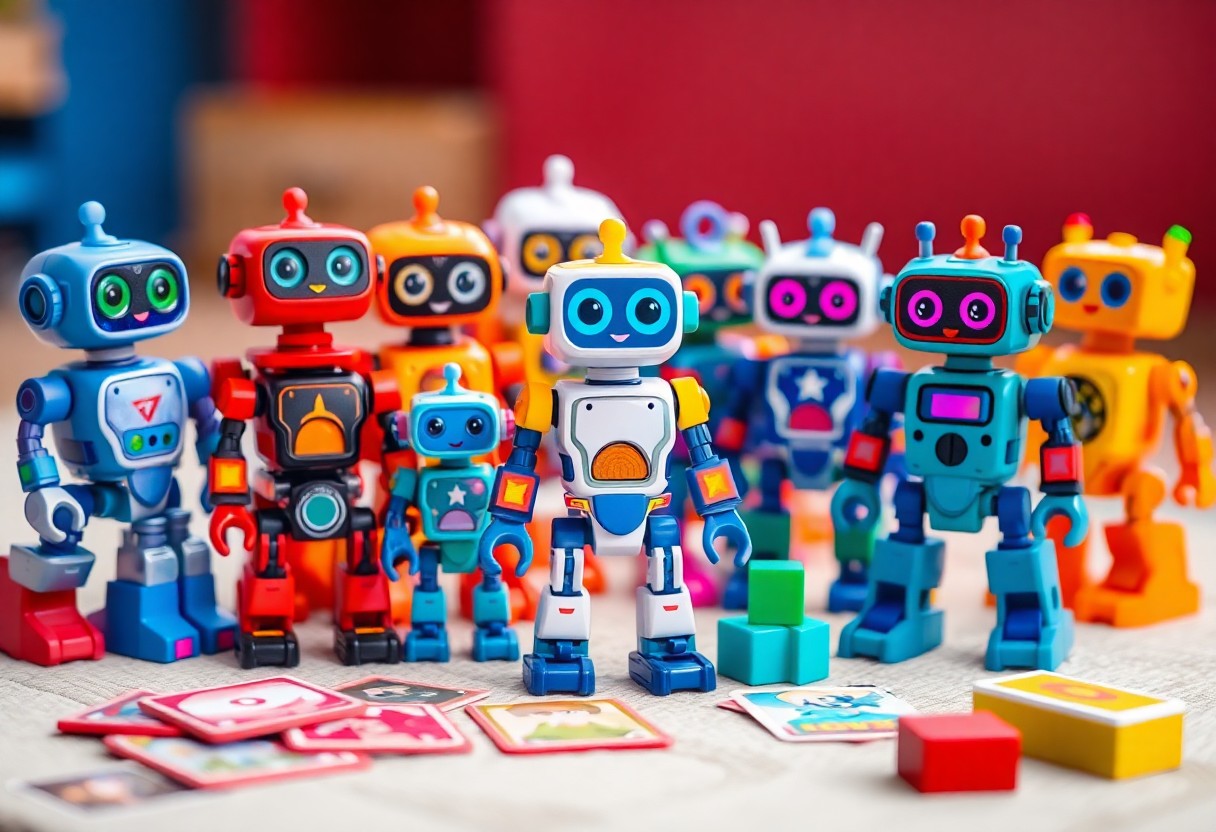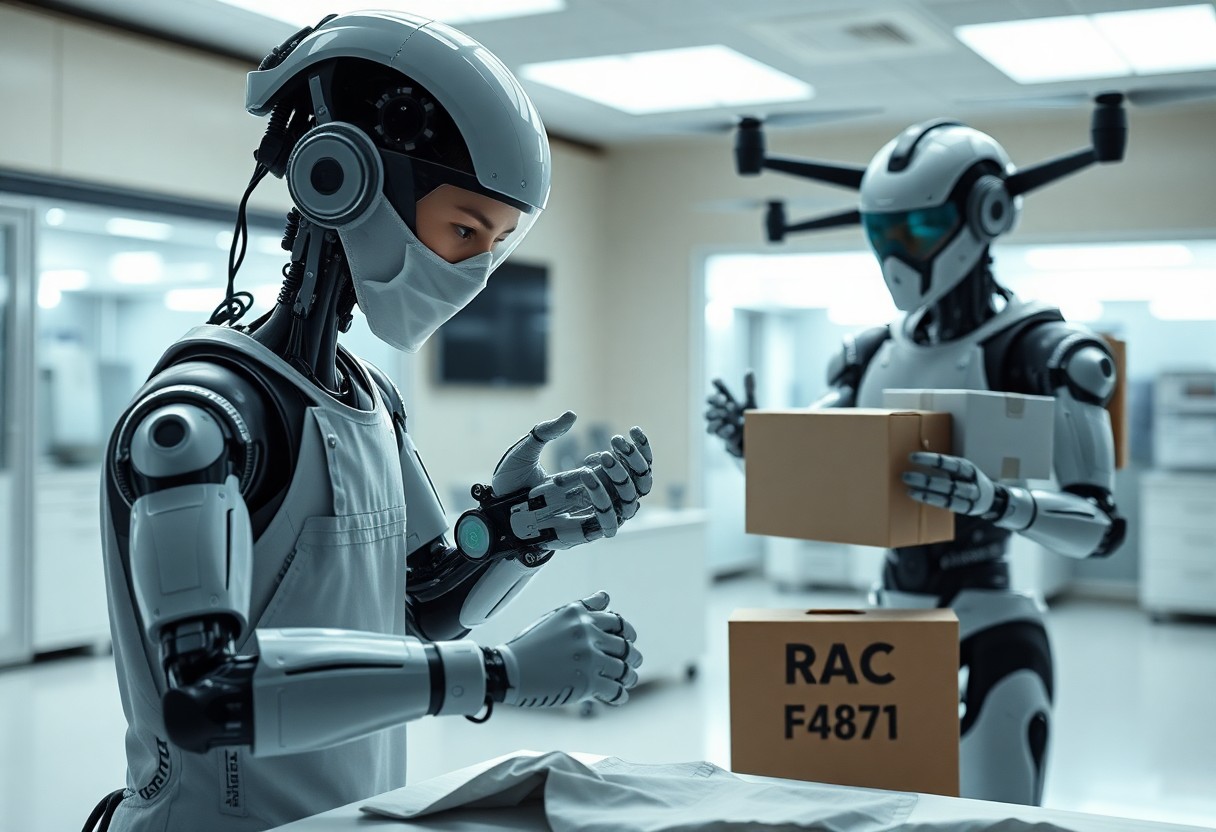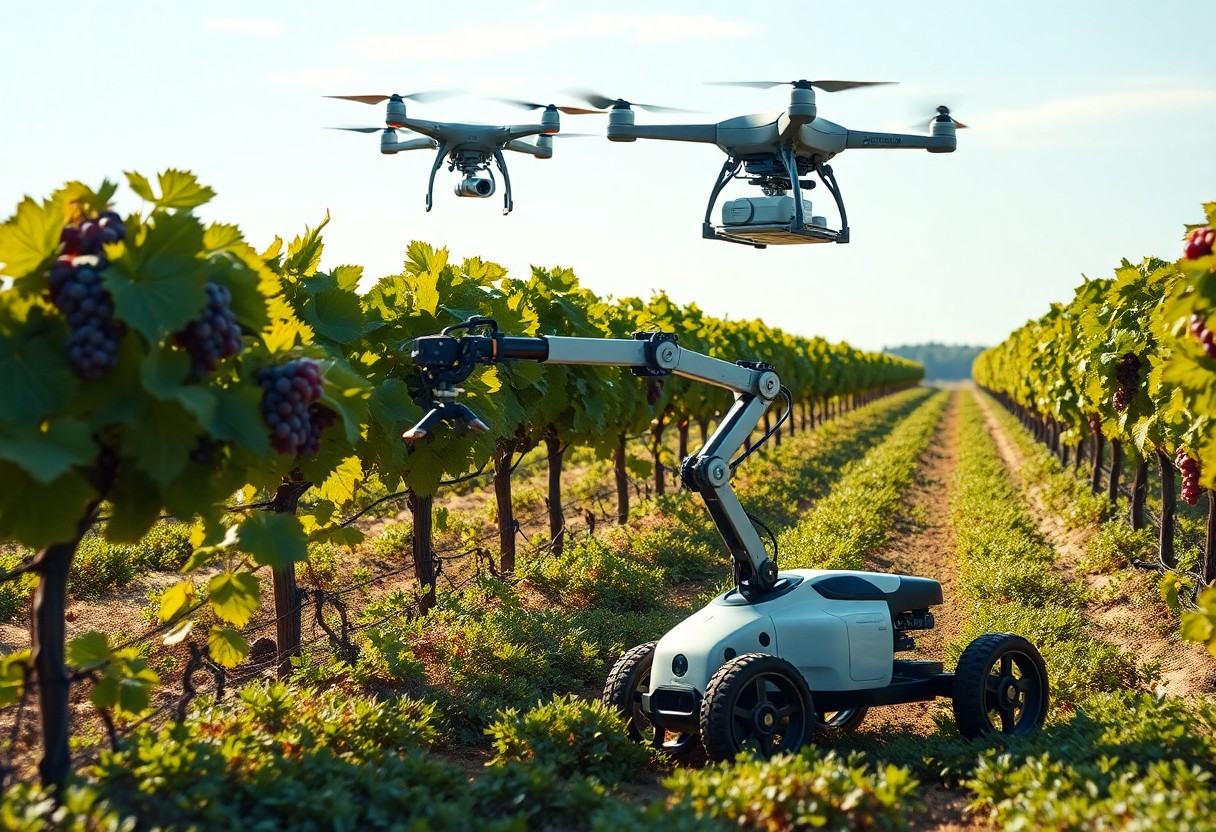You might be surprised by the diverse abilities that robots have developed to enhance your daily tasks. From precision in manufacturing to assisting in healthcare, these machines have adapted to perform with remarkable efficiency and accuracy. Understanding the unique capacities that modern robots offer can empower you to make informed choices about their application in both personal and professional settings. This blog post will explore various intriguing capabilities of robots that fit seamlessly into your accustomed activities, demonstrating how they can elevate your experiences and productivity.
Historical Context of Robotics
The journey of robotics can be traced back to ancient civilizations, where early inventors conceptualized automata. From simple mechanical devices to programmable machines, the evolution of robotics reflects your society’s advancing understanding of technology and engineering. Over the centuries, these innovations have laid the groundwork for modern robotics, transforming industries and daily life in ways that were once unimaginable.
Evolution of Robots in Industry
For decades, the integration of robots in industrial settings has revolutionized production processes. Early industrial robots, introduced in the late 20th century, focused on repetitive tasks such as assembly and welding. As technology progressed, you witnessed the development of more sophisticated robots that enhance efficiency, safety, and precision in manufacturing environments.
Early Applications in Daily Life
The evolution of robotics didn’t just remain in factories; it started making its way into your daily life. Early applications included robotic vacuum cleaners and lawn mowers aimed at simplifying household chores. These devices marked the beginning of a trend, extending automation beyond industrial use to personal convenience and comfort.
A significant milestone in the early applications of robotics was the introduction of robotic vacuum cleaners, which brought effortless cleaning to homes. Their ability to navigate autonomously around furniture highlighted the potential of robotics in enhancing everyday tasks. In addition, robotic lawn mowers began cutting grass without your intervention, demonstrating how robots could take on mundane chores. These innovations not only saved you time but also ignited interest in incorporating more advanced robots into various aspects of your life, paving the way for greater developments in personal robotics.
Current Capabilities of Robots
Assuming you explore the world of robotics, you’ll discover that today’s robots possess remarkable abilities across various sectors. From industrial applications to everyday household tasks, they have been designed to enhance productivity and efficiency. Their capabilities range from intricate programming for precise movements to incorporating artificial intelligence for improved decision-making. As you research into the current landscape of robotics, you’ll appreciate how these advancements streamline processes and transform our daily lives.
Automation in Manufacturing
Current advancements in robotics have revolutionized automation in manufacturing, enabling increased productivity and reduced operational costs. Robots can now perform repetitive tasks with precision, working alongside human operators to optimize workflows. You may find that these machines excel in assembly, quality control, and even logistics, ultimately enhancing both efficiency and safety in production environments.
Service Robots in Home and Hospitality
Hospitality industries have embraced service robots, creating a transformative experience for guests and staff alike. These robots can assist with various tasks, from delivering food to providing information, making your stay seamless and enjoyable.
But the impact of service robots extends beyond just hospitality; they are gradually becoming integral to household routines as well. With robots that can vacuum, mop, or even help in the kitchen, you can enjoy a more manageable lifestyle. Their ability to learn from your habits and preferences means they can adapt to your specific needs, freeing up your time for leisure or other activities. As you begin to integrate these innovative solutions into your life, you’ll discover a new level of convenience and support that enhances your everyday experiences.
Cognitive Skills of Robots
Even though robots are often perceived as mechanical tools, their cognitive skills are quite advanced, allowing them to perform intricate tasks with precision. By mimicking human-like thought processes, they can analyze data, learn over time, and make informed decisions to adapt to various situations. This impressive capability enables robots to enhance productivity, providing you with innovative solutions in everyday operations.
Learning Algorithms and Adaptability
Beside their physical abilities, robots utilize learning algorithms that enable them to adapt to new environments and tasks efficiently. This adaptability ensures that they can continuously improve their performances, responding to changes and optimizing their operations over time. You will find that such learning capabilities let robots evolve alongside your needs.
Problem-Solving and Decision Making
Along with their learning capabilities, robots possess remarkable problem-solving and decision-making abilities. By evaluating different scenarios and weighing potential outcomes, they can execute processes that require critical thinking. Their analytical approach allows you to benefit from quick and accurate solutions, even in complex situations.
The decision-making process in robots often involves algorithms that simulate human cognition, enabling them to assess multiple variables and predict outcomes. These advanced systems not only analyze past data but also learn from experiences to inform future decisions. This means that as you rely on robots for various tasks, their evolving intelligence can lead to more efficient operations, ultimately allowing you to achieve results with minimal intervention.
Physical Abilities of Robots
Once again, the physical capabilities of robots astonish us as they undertake various accustomed activities. These machines have been designed to excel in tasks that require precision, strength, and endurance. You can explore 10 Incredible Things Robots Can Do to see the range of skills they can demonstrate.
Mobility and Navigation Technologies
An intriguing aspect of physical abilities is robots’ mobility and navigation technologies. Equipped with advanced sensors and algorithms, these machines can traverse unfamiliar environments, adapt to obstacles, and execute precise movements. Their ability to plan and optimize their paths allows them to perform tasks efficiently, whether in a factory setting or navigating your living space.
Tool Manipulation and Dexterity
Behind their robust construction, robots are engineered for exceptional tool manipulation and dexterity. This allows them to handle various instruments and perform intricate tasks that require fine motor skills, enhancing their functionality across a wide range of applications.
Manipulation is key to understanding robots’ practical applications in everyday tasks. You will find that precision grippers and articulated arms enable robots to assemble products, perform surgeries, or even assist in home chores. Their design allows for an incredible range of motions, mimicking human dexterity, making them invaluable in industries like manufacturing and healthcare.
Social Interactions and Emotional Intelligence
After observing the rapid development of robotics, you may find it fascinating how these machines are beginning to exhibit forms of emotional intelligence. Advanced robots can analyze human emotions through facial recognition and voice modulation, allowing them to engage with you in ways that feel more personal and empathetic. As technology continues to progress, these robots are set to become companions that can understand and respond to your emotional cues, enriching your social experiences.
Human-Robot Interaction Dynamics
Social interactions between you and robots are becoming increasingly sophisticated. Robots are now designed to interpret your gestures, tone, and even emotional states. By adapting their responses based on your feedback, they create a more engaging, intuitive experience that can enhance various aspects of your everyday life.
Robots in Healthcare and Therapy
Dynamics in the healthcare sector are evolving with the integration of robots, which you may find quite transformative. These robots facilitate therapy sessions, assist in rehabilitation, and provide companionship to patients, making healthcare more interactive and personalized.
A growing body of research shows that robots in healthcare and therapy not only improve patient outcomes but also provide emotional support. When you interact with healthcare robots, they can encourage compliance with therapy through motivation and reminders. In settings such as nursing homes, these robots help alleviate feelings of loneliness by engaging in conversations and performing entertaining activities, thus creating a supportive environment that fosters emotional well-being.
Future Prospects of Robotic Integration
Despite rapid advancements in robotics, the future holds even more exciting opportunities for integrating robots into everyday activities. As technology progresses, you can expect robots to take on more complex tasks, enhancing efficiency in various sectors, from health care to manufacturing. You may find that your interactions with robots become increasingly seamless, as they adapt to meet your specific needs and preferences.
Innovations on the Horizon
Against this backdrop of development, innovations in robotic technologies are emerging at an unprecedented pace. You will see robots designed with advanced AI capabilities, allowing them to learn and evolve from human interactions. This means that soon, you could be collaborating with robots that not only understand your tasks but anticipate your needs, streamlining processes in ways previously thought impossible.
Ethical Considerations and Societal Impact
With the increasing presence of robots in your daily life, ethical considerations become a pivotal discussion point. You should think about how automation impacts employment, privacy, and your relationship with technology in general. As robots take on more roles, it’s important to weigh the benefits against potential consequences on society.
Prospects for ethical robotic integration involve a thorough examination of the social consequences tied to automation. You may need to confront challenges regarding job displacement and the need for new skill sets in the workforce. Furthermore, your privacy might be called into question as robots collect and process vast amounts of personal data. By fostering intelligent dialogue around these issues, a more balanced coexistence between humans and robots can be achieved, ensuring that technology serves to enhance, rather than compromise, your way of life.
Summing up
Now that you’ve explored the intriguing capacities of robots for accustomed activities, you can appreciate how they streamline everyday tasks. These machines enhance efficiency, adaptability, and precision in various fields, from industrial automation to personal assistance. You’ll find that robots can learn from their environments, collaborate with humans, and even perform repetitive tasks with remarkable consistency. By understanding their capabilities, you can better envision how robots will continue to transform the way you live and work in the future.







